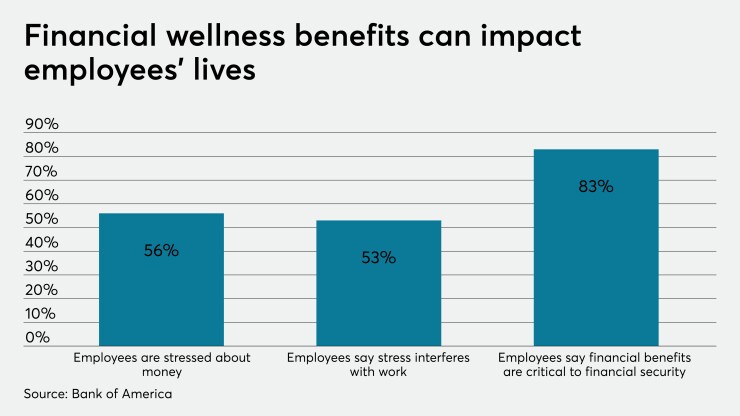Navigating tough financial decisions in a year filled with surprises, uncertainty and divergent viewpoints is nearly impossible to do without trusted financial advice.
With little guidance and insufficient emergency savings, the majority of American workers are facing meaningful financial challenges and are at significant risk for making financial decisions they are likely to regret.
Where can they turn?
The majority of employees (84%) say getting financial advice at work would be valuable, with 74% saying it would reduce their financial stress, according to a recent Edelman Financial Engines survey of U.S. employees, conducted during the Covid-19 pandemic. Half of those surveyed also say they’d be more likely to stay with their employer if they offered financial advice as an employee benefit.
In the absence of workplace-provided financial advisers, the research found that many employees turn to unqualified sources for financial guidance, with two-thirds of those surveyed relying on the internet or family members for advice. While family members may be well-intentioned, and websites may seem credible, they can be risky avenues for advice that could impact workers’ future financial security.
Good financial advice should be personalized, factoring in a person’s full financial situation, and those providing this advice should be skilled, experienced and most importantly, objective, adhering to the highest fiduciary standard.
The qualitative feedback from survey respondents shows that some believe “bad advice” often comes from conflicted advisers who sell products and are more motivated by fees and commissions than by providing advice that is in an employee’s best interest.
The decisions being made in the current environment include borrowing or withdrawing money from retirement accounts for reasons other than retirement, making fear-driven decisions related to investments in stocks and bonds, and reducing savings rates. With guidance from a reliable expert, many of these poor decisions can be avoided.
Employers are uniquely positioned to provide access to qualified, vetted sources of financial advice. The survey revealed that many employees fear they can’t afford an adviser or don’t have enough savings to use one, while others lack trust. The good news is that employers often have the institutional buying power to deliver these services to employees at a lower cost than they might obtain on their own.
Even in the wake of election results and promising vaccine news, American workers still have questions about what the future holds for their families, careers and finances. Now more than ever, employers are the key to helping hardworking Americans obtain the financial advice they want, need and deserve.






